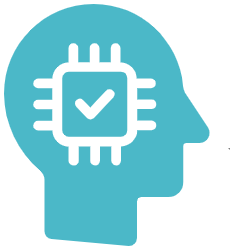Large Language Models (LLMs) like GPT are advanced AI systems designed to understand, generate, and interact with human language at a large scale. These models are trained on vast amounts of text data, allowing them to grasp the nuances, context, and complexities of language. They can perform a variety of tasks, from translation and summarization to question-answering and content creation, making them incredibly versatile tools in the AI landscape.
Examples of Large Language Models:
- GPT (Generative Pretrained Transformer) Series: Developed by OpenAI, the GPT series, including GPT-3 and its successors, are some of the most well-known LLMs. They are renowned for their ability to generate coherent and contextually relevant text based on the input they receive.
- BERT (Bidirectional Encoder Representations from Transformers): Developed by Google, BERT excels in understanding the context of words in search queries, significantly improving search results and natural language understanding tasks.
- T5 (Text-to-Text Transfer Transformer): Also developed by Google, T5 reframes all NLP tasks as a text-to-text problem, where the model is trained to convert text inputs into desired text outputs.
- ERNIE (Enhanced Representation through kNowledge Integration): Developed by Baidu, ERNIE is designed to better understand the syntax and semantic nuances of language by incorporating world knowledge and entity information into its training.
Custom Large Language Models for Specific Industries:
The development of custom LLMs tailored to specific industries can significantly enhance operational efficiency and innovation. Custom LLMs are trained on specialized datasets relevant to a particular field, allowing them to understand and generate industry-specific content with higher accuracy and relevance.
Examples of Custom LLM Applications:
- Legal Industry: Custom LLMs can be trained on legal documents, case laws, and literature to assist in legal research, contract analysis, and even predict legal outcomes, offering invaluable tools for law firms and legal departments.
- Healthcare Sector: Custom models trained on medical literature, patient records, and research papers can assist in diagnosing conditions, suggesting treatments, and even in the development of new drugs by understanding complex medical data.
- Financial Services: LLMs specialized in finance can analyze market trends, financial reports, and regulatory documents to provide insights, automate reporting, and enhance customer service in banking and investment firms.
Companies Using Their Own LLMs:
- Google: Uses BERT and other custom models to improve search results, understand user queries better, and enhance natural language understanding across its services.
- Facebook (Meta): Developed its own LLMs for content moderation, understanding social media interactions, and improving user experiences on its platforms.
- Amazon: Uses custom LLMs for improving Alexa’s understanding of natural language, enhancing product recommendations, and automating customer service responses.
Limitations and Considerations:
Despite their potential, custom LLMs may not be suitable for all organizations due to several factors:
- High Costs: Developing and training custom LLMs require significant computational resources and expertise, making it a costly endeavor.
- Data Privacy: Sensitive industries like healthcare and finance may have strict regulations around data use, making it challenging to train models without compromising privacy.
- Maintenance and Updating: LLMs need continuous updating to remain relevant and accurate, requiring ongoing investment in resources and data.
- Complexity and Overkill: For some businesses, especially small to medium enterprises, the complexity and capabilities of LLMs might be more than what is needed, making simpler solutions more viable.
In conclusion, while LLMs and custom variants offer transformative potential across industries, their adoption must be carefully considered in the context of specific business needs, costs, and regulatory environments. For organizations with the resources and strategic need, custom LLMs can provide a significant competitive edge and drive innovation. However, for others, off-the-shelf models or simpler AI solutions might be the more practical choice.

